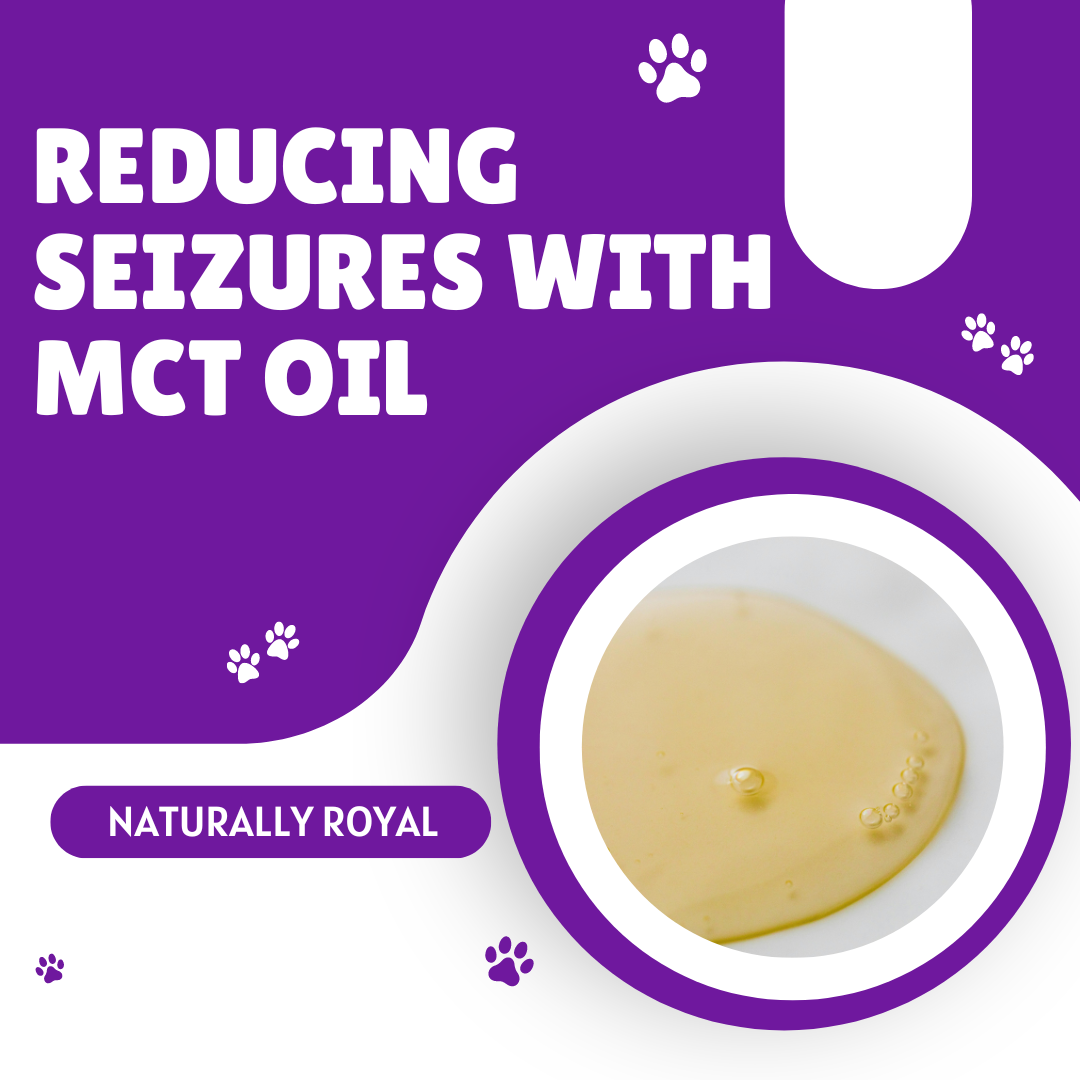Mct Oil For Dogs With Seizures

Imagine a golden retriever, eyes filled with worry, suddenly stiffening, its body convulsing. The room falls silent, save for the soft whimpers of its owner kneeling beside him, helpless. For many dog owners, this is a terrifying reality: the unpredictable and heartbreaking experience of canine seizures.
But amidst the fear and uncertainty, a glimmer of hope is emerging in the form of MCT oil. While not a cure-all, MCT oil, derived from coconut or palm kernel oil, is showing promise as a potential tool in managing seizures in dogs, offering a chance to improve their quality of life and ease the burden on their families.
Understanding Canine Seizures
Canine seizures are a neurological condition that can stem from a variety of causes. These causes range from genetic predispositions like idiopathic epilepsy, to underlying health problems such as brain tumors, liver disease, or even exposure to toxins.
Diagnosing the root cause of seizures often requires a comprehensive veterinary examination. This includes blood tests, neurological assessments, and sometimes even advanced imaging techniques like MRI.
Traditional treatment typically involves antiepileptic drugs (AEDs). Although effective in many cases, AEDs can come with side effects. These include lethargy, increased thirst and appetite, and, in some instances, liver damage.
The MCT Oil Connection
MCT oil stands for Medium Chain Triglycerides, a type of dietary fat that is metabolized differently than long-chain triglycerides found in most foods.
When MCTs are digested, they're rapidly absorbed and converted into ketones. These ketones are an alternative energy source for the brain.
The potential link between MCT oil and seizure control lies in the ketogenic diet. This is a high-fat, low-carbohydrate diet known for its anticonvulsant effects.
The Science Behind MCT Oil and Seizures
The exact mechanisms by which ketones reduce seizure activity are still under investigation. However, several theories exist.
One prominent theory suggests that ketones increase the excitability threshold of neurons. In other words, it takes more stimulation to trigger a seizure.
Another theory suggests that ketones can enhance the function of GABA, an inhibitory neurotransmitter in the brain. GABA helps calm neuronal activity and reduce the likelihood of seizures.
Research and Evidence
While research is still ongoing, early studies on the use of MCT oil for canine epilepsy are encouraging.
A study published in the Journal of Veterinary Internal Medicine showed a significant reduction in seizure frequency in dogs with idiopathic epilepsy who were supplemented with MCT oil compared to a control group.
Researchers at the Royal Veterinary College have also conducted trials demonstrating the potential benefits of MCT oil in managing canine epilepsy.
How to Use MCT Oil Safely and Effectively
Before introducing MCT oil into your dog's diet, it is crucial to consult with your veterinarian. This is especially important if your dog is already on medication or has underlying health conditions.
MCT oil should be introduced gradually to avoid gastrointestinal upset. Start with a small amount and gradually increase the dosage over several days or weeks.
Dosage recommendations vary depending on the dog's size and individual needs. Your veterinarian can provide guidance on the appropriate dosage for your pet.
Choosing the Right MCT Oil Product
Not all MCT oils are created equal. It's essential to choose a high-quality product specifically formulated for dogs.
Look for MCT oil derived from coconut oil, which contains a higher proportion of caprylic acid (C8) and capric acid (C10), the MCTs believed to be most effective for seizure control.
Avoid products that contain additives, fillers, or artificial flavors. Always read the label carefully.
Integrating MCT Oil into a Holistic Approach
MCT oil is not intended to replace traditional antiepileptic medications. Instead, it should be considered as part of a holistic approach to managing seizures.
This approach may include a balanced diet, regular exercise, stress reduction techniques, and other complementary therapies.
Working closely with your veterinarian to develop a personalized treatment plan is crucial for achieving optimal seizure control and improving your dog's overall well-being.
The Impact on Owners and Their Dogs
For many dog owners, the unpredictable nature of seizures can be emotionally draining. The constant worry and the helpless feeling during an episode can take a toll.
MCT oil offers a sense of hope and empowerment. It allows owners to actively participate in their dog's care and potentially reduce the severity and frequency of seizures.
The potential for improved quality of life extends beyond the dog. It provides peace of mind for their owners, knowing they are doing everything possible to help their beloved companion.
A Note of Caution
While MCT oil shows promise, it's not a guaranteed solution for all dogs with seizures. Some dogs may not respond to MCT oil, and others may experience side effects.
It's important to manage expectations and remember that MCT oil is just one tool in the toolbox for managing canine epilepsy.
Close monitoring and regular communication with your veterinarian are essential for determining the effectiveness of MCT oil and making any necessary adjustments to the treatment plan.
Looking Ahead
The field of canine epilepsy research is constantly evolving. Further studies are needed to fully understand the mechanisms of action of MCT oil and identify the optimal dosage and formulation for different types of seizures.
Ongoing research is also exploring the potential benefits of combining MCT oil with other natural therapies. This will lead to even more effective and personalized treatment options for dogs with epilepsy.
As research advances, the future looks brighter for dogs with seizures and their devoted owners.
A Story of Hope
Take the story of Bella, a five-year-old beagle who had been struggling with seizures for over a year. Despite being on medication, Bella continued to experience breakthrough seizures, leaving her disoriented and exhausted.
After consulting with her veterinarian, Bella's owner decided to add MCT oil to her daily regimen. Within a few weeks, they noticed a significant reduction in the frequency and severity of Bella's seizures.
"It's been a game-changer," says Bella's owner. "She's more alert, playful, and seems much happier. The MCT oil has given us both a sense of relief and hope."
Conclusion
The journey of managing canine seizures can be a challenging one. It requires patience, dedication, and a willingness to explore different treatment options.
MCT oil offers a promising avenue for improving the lives of dogs with epilepsy. By working closely with your veterinarian and embracing a holistic approach, you can help your furry friend live a happier, healthier, and more seizure-free life.
Remember, you are not alone. There is a community of support available to help you navigate the challenges of canine epilepsy and find the best possible care for your beloved companion.


















